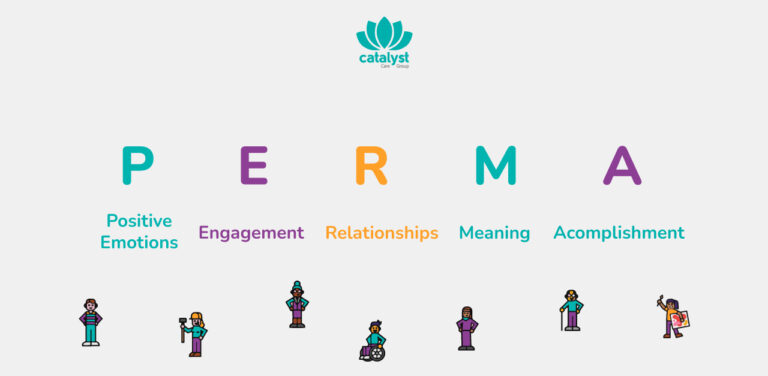Different parts of our system, such as education, healthcare, local authorities, the criminal justice system, and social care, each have distinct cultures, structures, processes, funding arrangements, and data management approaches. This fragmentation spans from planning and commissioning to oversight and regulation, creating obstacles that affect local and regional efforts to achieve integrated, personalised care and support.
Additionally, our White Paper Survey 2023 reveals that the health and social care system is complex and fragmented, with significant variations in the quality and accessibility of care.
Challenges Faced by Case Commissioners in the UK
In the UK healthcare system, case commissioners encounter several significant challenges that impact their ability to provide efficient care. Key issues include budget limitations, staffing shortages, care integration, and regulatory compliance. These factors affect the delivery of high-quality care and put considerable pressure on commissioners as they strive to meet community needs.
Discussing these challenges and collaborating with health professionals and other key stakeholders in health service delivery is essential for developing strategies to support commissioners and enhance care outcomes.
In our White Paper Survey, we looked at the three main aspects of how health and social care is delivered and where the challenges seem to appear:
- People’s experience and involvement in care: the perspectives and experiences of people, families, and caregivers, how they participate in their care, and how their feedback is utilised to enhance services.
- Accessing high-quality care: how partners plan and provide services that ensure timely access to high-quality care.
- Identifying and responding to commissioning gaps: how the sector deals with people’s evolving needs and current challenges.

Budget Constraints
A significant challenge for case commissioners is budget constraints, which restrict their ability to allocate resources efficiently and maintain high-quality care services. Due to financial pressures from various sectors, NHS commissioners frequently face tough choices about which services to prioritise. This can result in reduced service availability, longer waiting times, and diminished support for people who require care.
The financial strain can also hinder investment in innovative care solutions and infrastructure, delaying necessary improvements and adaptations for evolving healthcare. As a result, commissioners must continually balance the care sector’s immediate demands and current challenges with the long-term goal of financial sustainability.
Staffing Shortages
The UK health and social care sector has faced major challenges with recruitment and retention, leading to significant staff shortages and an often overburdened and under-resourced workforce. These shortages impact the quality and continuity of care, as there are fewer team members to meet the increasing demand for services.
Commissioners must address the consequences of this shortfall, including heightened burnout, lower satisfaction in care provision, and compromised care standards. Additionally, the shortage of skilled professionals restricts the sector’s capacity to expand and innovate, further limiting commissioners’ ability to implement effective care strategies.
Integration of Care
Effective integration necessitates seamless coordination among multiple providers and local authorities (integrated care systems), consistent communication, and unified care plans. However, organisational silos, differing priorities, and varying standards of practice can impede this process. For case commissioners, the challenge is to bridge these gaps to ensure cohesive and continuous care.
Without effective integration, people may encounter fragmented services and inefficiencies that could adversely affect their overall well-being. Therefore, commissioners must work diligently to foster collaboration and streamline processes across the care continuum.
Regulatory Compliance
Navigating regulatory compliance in the public sector is complex for case commissioners, who must ensure all care services meet strict standards and guidelines. The regulatory landscape is continually evolving, with new policies and requirements frequently emerging. Compliance requires thorough documentation, regular audits, and ongoing training, all of which can be resource-intensive.
For commissioners, keeping up with regulatory changes and making necessary adjustments is crucial to avoid penalties and maintain service quality. However, the administrative burden of compliance can divert attention and resources from direct care provision, posing a significant challenge in balancing regulatory obligations with the primary goal of delivering high-quality care.
Impact on Healthcare System
The challenges healthcare systems encounter collectively impact health and care services by affecting resource allocation, strategic planning, workforce dynamics, care coordination, and regulatory compliance.
Budget constraints can result in:
- Reduced service availability
- Deferred maintenance and upgrades
Staff shortages can cause:
- Increased workload and burnout
- Compromised care
Lack of care integration can lead to:
- Barriers to comprehensive care
- Inconsistent care journeys
Challenges in regulatory compliance can result in:
- Resource diversion
- Increased operational costs
- Stress on health and social care providers
These key challenges disproportionately affect the healthcare system, especially in primary care and mental health services, which are crucial to public health and overall care. Future challenges arise as local systems struggle with health inequalities that disproportionately impact vulnerable populations.
The strain on primary care providers and mental health professionals is severe, as they are often the first point of contact for people needing complex care and play a vital role in early intervention and ongoing management of health conditions.
Home Care and Community Services: The Future of Care
There is an increasing demand for shifting health and social care towards community services. This demand is driven by a growing recognition of the benefits, such as personalised care in familiar settings, enhanced quality of life, and greater autonomy for people. Community services play a pivotal role in meeting these needs by providing tailored support that extends beyond traditional healthcare settings.
By expanding community services, we meet the diverse needs of populations more effectively, reducing the strain on hospitals and long-term care facilities. This approach improves access to care and fosters stronger social connections and mental well-being.
As communities become more interconnected, people receive holistic support that addresses both medical and social aspects of their lives. Embracing this shift is crucial for building resilient healthcare systems that empower people and enhance overall community health.
Communication and Collaboration: Key Points for Quality Healthcare Provision
Effective communication and collaboration are essential for ensuring quality healthcare provision. Emphasising good communication within healthcare organisations promotes collaboration and prevents errors, highlighting the need for programmes and training activities to foster teamwork. Interprofessional collaboration in healthcare has been shown to improve outcomes for people receiving care, underscoring the significant impact of teamwork on healthcare quality.
Clear and consistent communication is crucial for the smooth operation of healthcare services. It ensures that all stakeholders, including people receiving care, their families, and care professionals, are well-informed and aligned.
Effective communication can:
- Enhance Care: Ensuring people understand their treatment plans and follow-up requirements can improve compliance and outcomes.
- Reduce Errors: Accurate and timely communication among healthcare professionals minimises the risk of errors, such as incorrect medication administration.
- Improve Coordination: Consistent communication across different departments and care providers facilitates better coordination of services, reducing delays and ensuring comprehensive care.
Collaboration can help to:
- Integrate Care Services: Collaborative efforts bridge gaps between various levels of care, ensuring a more seamless care journey and reducing fragmentation.
- Leverage Expertise: By working together, care professionals can pool their expertise and resources to develop more effective treatment plans and innovative solutions.
- Address Health Inequalities: Collaborative initiatives can target social determinants of health more effectively, promoting equitable access to care and reducing health disparities among different population groups.
Catalyst Care Group is Dedicated to Transform Care for The Better
At Catalyst Care Group, we believe in personalised care that meets the unique needs and preferences of each person we support. Our person-centred approaches consider the physical, emotional, social, and psychological well-being of the people we serve. By focusing on holistic care, we aim to improve their quality of life and enhance overall well-being.
We are dedicated to fostering an inclusive and supportive environment where everyone feels valued and respected. Through ongoing innovation and service enhancements, we strive to continuously improve our support. As a provider of social care, we prioritise the training and development of our teams to ensure they possess the expertise and skills required to deliver exceptional care.
Our in-house therapy team includes specialists in Positive Behaviour Support (PBS), Speech and Language Therapy, and Occupational Therapy. They employ a strength-based approach to support people requiring complex care, ensuring comprehensive and effective care solutions.













